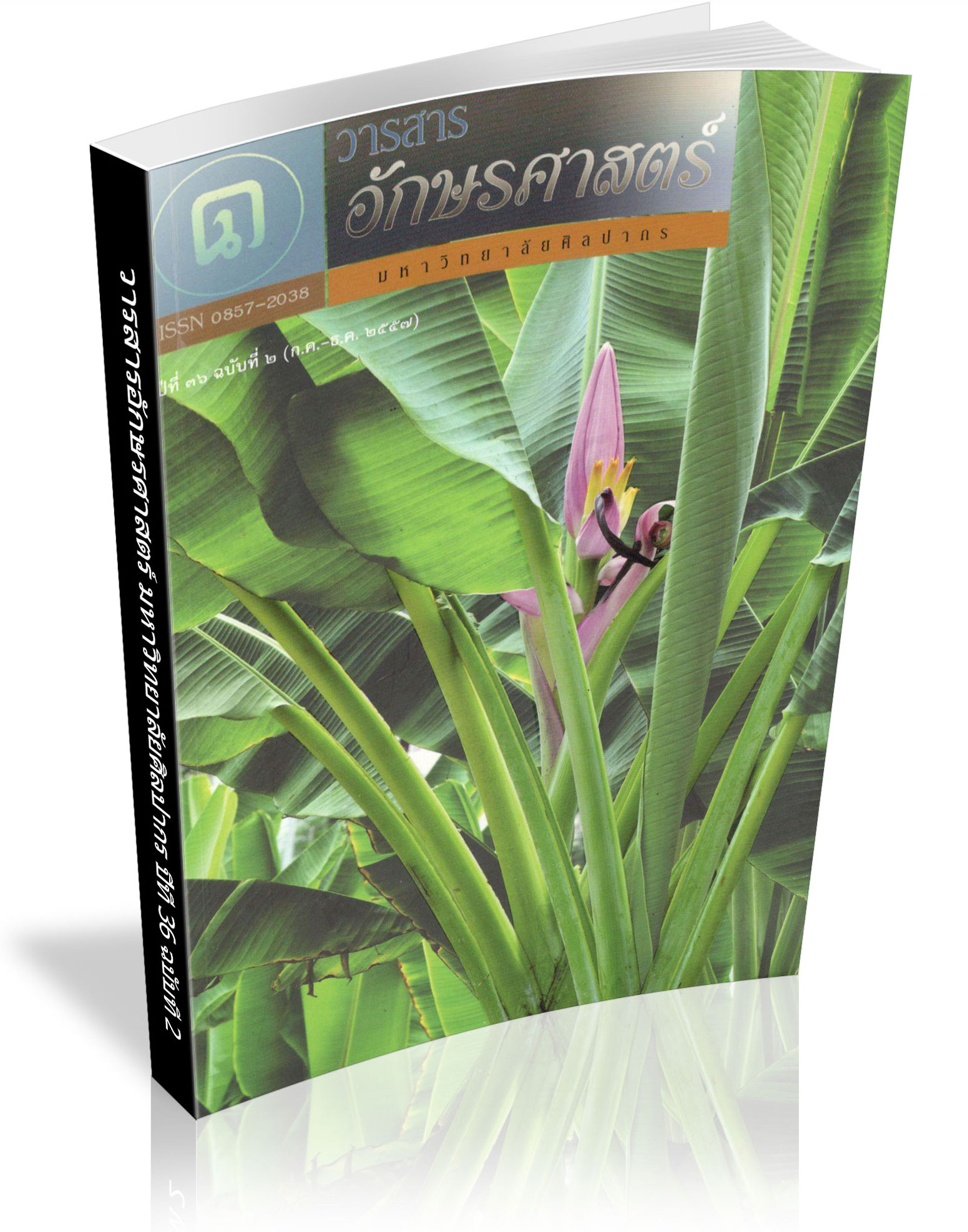Prayers to Tai Sui God : Values and Human Needs
Keywords:
Prayers, Tai Sui God, Values, Needs, Human SecurityAbstract
This article aims to analyze 1) the linguistic components addressed to Tai Sui God 2) prayers of people in three different generations 3) the values reflected in their prayers and 4) human needs and security. The data for the research were collected from prayer slips addressed to Tai Sui God at Mettathamphothiyan Temple in Kanchanaburi Province in 2014.
The data are divided into 3 groups based on the ages of the addressers : 1) 65-80 years old, 2) 40-45 years old, and 3) 15-30 years old. There are 50 males and 50 females in each group. The total number of the addressers is 300 and there are altogether 1,579 prayers. The results indicate that the linguistic components used in the prayers addressed to Tai Sui God can be divided into 6 components : 1) markers of prayers, 2) prayers, 3) intensifiers, 4) goals, 5) expectations and 6) endings. There are 11 values reflected in the prayers: 1) strong health, 2) wealth, 3) career, 4) happiness, 5) family, 6) fortune, 7) fulfillment, 8) marriage, 9) good opportunity, 10) education and 11) others. Different age groups place different degrees of emphasis on each value. In addition, prayers addressed to Tai Sui God explicitly illustrate 9 types of human values : 1) health and beauty; 2) material and financial values; 3) secure, easy, and highly-paid job; 4) perfect family; 5) fast and easy money; 6) respect power, title, and position; 7) admission to a renowned public university 8) faithful relationship and 9) Buddhism. With regard to human needs, prayers addressed to Tai Sui God also reveals 7 types of human which correspond to the UN's basic principles of security : 1) health, 2) job and income, 3) security in life and property, 4) education, 5) family, 6) residence and environment and 7) society and culture.
Downloads
References
วิเชียร ชวลิต. (๒๕๕๖). เอกสารวิชาการ สมพ. ๑ ลําดับที่ ๘๙ เล่มที่ ๑/๒๕๕๖. กรุงเทพมหานคร : สํานักมาตรฐานการพัฒนาสังคมและความมั่นคงของมนุษย์ สํานักงานปลัดกระทรวงกระทรวงการพัฒนาสังคมและความมั่นคงของมนุษย์.
ศุภชัย ต๊ะวิชัย. (๒๕๕๖). “การนําสัตว์มาใช้เรียกคนในภาษาไทย : กรณีศึกษานักศึกษามหาวิทยาลัยศิลปากร.” วารสารอักษรศาสตร์ มหาวิทยาลัยศิลปากร ๓๕,๒ (กรกฎาคม-ธันวาคม) : ๕๔-๗๕.
Bargiela-Chiappini, Francesca and Harris J., Sandra. (1996). "Request and status in correspondence.” Journal of Pragmatics 28 : 635-662.
ภาพจากเว็บไซต์
กิมหงิกเต้า. (๒๕๕๗). เข้าถึงเมื่อ ๙ พฤศจิกายน ๒๕๕๗. เข้าถึงได้จาก https://www.chengmeng2557.com/
เทียงเถ่าจี้. (๒๕๕๗). เข้าถึงเมื่อ ๙ พฤศจิกายน ๒๕๕๗. เข้าถึงได้จาก https://www.chengmeng2557.com/
รถจักรยานยนต์ดูคาติ. (๒๕๕๗). เข้าถึงเมื่อ ๙ พฤศจิกายน ๒๕๕๗. เข้าถึงได้จาก https://www.motorcyclemonster.com/news/archives-December-2009.html
Downloads
Published
How to Cite
Issue
Section
License
ผู้เขียนบทความต้องยินยอมในข้อกำหนดต่าง ๆ ของวารสารก่อนส่งบทความตีพิมพ์



